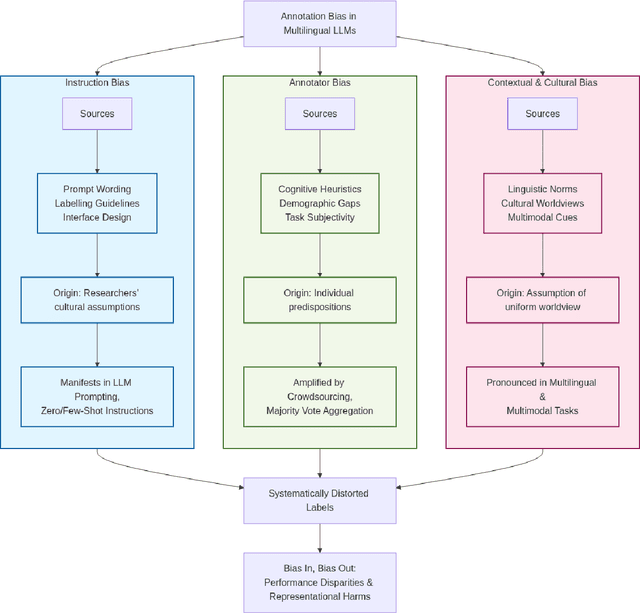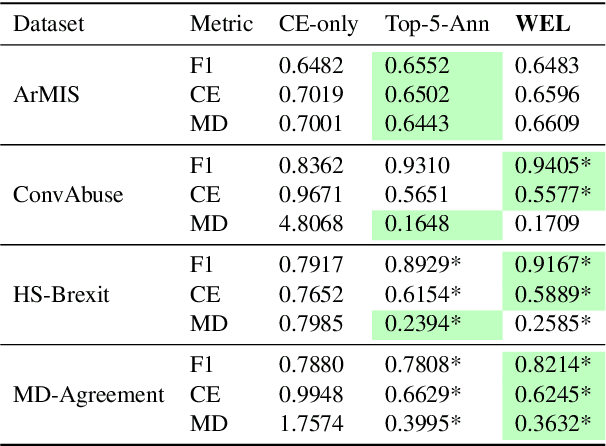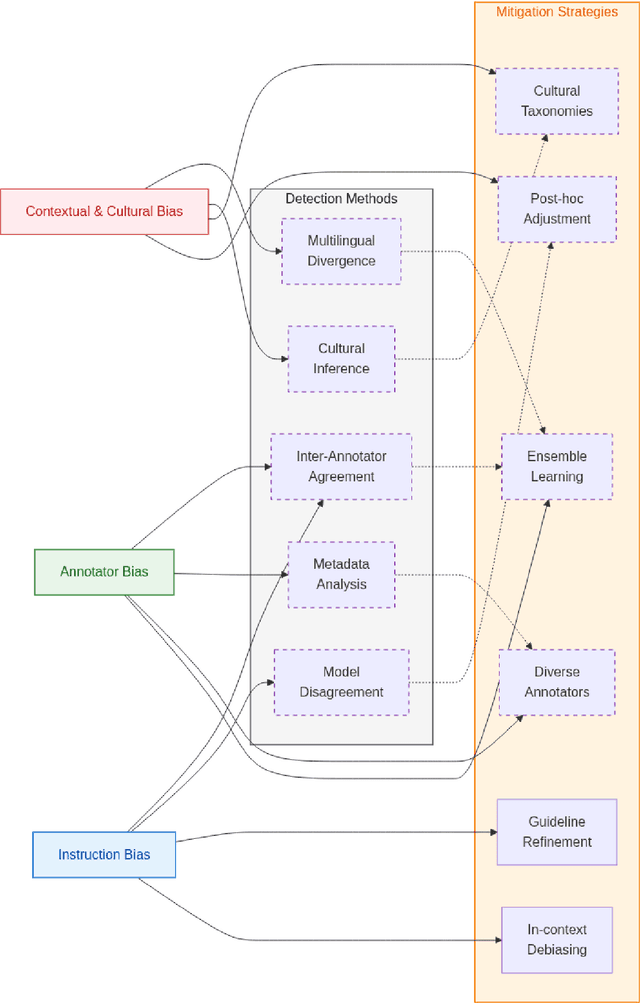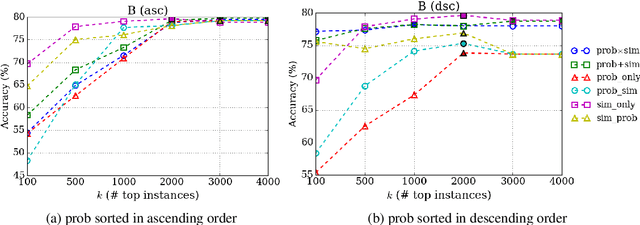Xia Cui
Bias in, Bias out: Annotation Bias in Multilingual Large Language Models
Nov 18, 2025



Abstract:Annotation bias in NLP datasets remains a major challenge for developing multilingual Large Language Models (LLMs), particularly in culturally diverse settings. Bias from task framing, annotator subjectivity, and cultural mismatches can distort model outputs and exacerbate social harms. We propose a comprehensive framework for understanding annotation bias, distinguishing among instruction bias, annotator bias, and contextual and cultural bias. We review detection methods (including inter-annotator agreement, model disagreement, and metadata analysis) and highlight emerging techniques such as multilingual model divergence and cultural inference. We further outline proactive and reactive mitigation strategies, including diverse annotator recruitment, iterative guideline refinement, and post-hoc model adjustments. Our contributions include: (1) a typology of annotation bias; (2) a synthesis of detection metrics; (3) an ensemble-based bias mitigation approach adapted for multilingual settings, and (4) an ethical analysis of annotation processes. Together, these insights aim to inform more equitable and culturally grounded annotation pipelines for LLMs.
Addressing Data Imbalance in Transformer-Based Multi-Label Emotion Detection with Weighted Loss
Jul 15, 2025Abstract:This paper explores the application of a simple weighted loss function to Transformer-based models for multi-label emotion detection in SemEval-2025 Shared Task 11. Our approach addresses data imbalance by dynamically adjusting class weights, thereby enhancing performance on minority emotion classes without the computational burden of traditional resampling methods. We evaluate BERT, RoBERTa, and BART on the BRIGHTER dataset, using evaluation metrics such as Micro F1, Macro F1, ROC-AUC, Accuracy, and Jaccard similarity coefficients. The results demonstrate that the weighted loss function improves performance on high-frequency emotion classes but shows limited impact on minority classes. These findings underscore both the effectiveness and the challenges of applying this approach to imbalanced multi-label emotion detection.
Multi-source Attention for Unsupervised Domain Adaptation
Apr 17, 2020



Abstract:Domain adaptation considers the problem of generalising a model learnt using data from a particular source domain to a different target domain. Often it is difficult to find a suitable single source to adapt from, and one must consider multiple sources. Using an unrelated source can result in sub-optimal performance, known as the \emph{negative transfer}. However, it is challenging to select the appropriate source(s) for classifying a given target instance in multi-source unsupervised domain adaptation (UDA). We model source-selection as an attention-learning problem, where we learn attention over sources for a given target instance. For this purpose, we first independently learn source-specific classification models, and a relatedness map between sources and target domains using pseudo-labelled target domain instances. Next, we learn attention-weights over the sources for aggregating the predictions of the source-specific models. Experimental results on cross-domain sentiment classification benchmarks show that the proposed method outperforms prior proposals in multi-source UDA.
 Add to Chrome
Add to Chrome Add to Firefox
Add to Firefox Add to Edge
Add to Edge